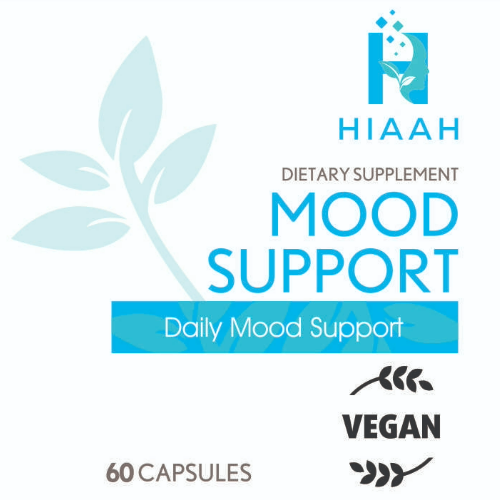Mood Support
**Mood Support Formula: Comprehensive Nutritional Support for Emotional Well-being**
This formula combines essential B-vitamins with mood-supporting herbs and nutrients to help manage stress, balance mood, and promote overall mental health.
Key Ingredients and Their Benefits:
*B-Vitamins Complex: This formula includes Thiamin, Riboflavin, Niacin, Vitamin B-6, Folate, and Vitamin B-12. B-vitamins are crucial for the nervous system and help the body to produce energy from food, which is vital for maintaining healthy brain function. They are also essential for creating neurotransmitters that regulate mood, such as serotonin and dopamine [1].
*Calcium and Magnesium: Both minerals are known for their role in nerve transmission and mood regulation. Magnesium, in particular, is critical for GABA function, a neurotransmitter that promotes relaxation and stress relief. Adequate levels of calcium and magnesium can help prevent mood swings and support overall mental health [2].
*Ashwagandha Root Extract: This adaptogen helps to combat stress and anxiety. By modulating the body’s stress response, Ashwagandha can improve resilience to emotional and physical stressors [3].
*GABA (gamma-Aminobutyric Acid): As a naturally occurring amino acid that functions as a neurotransmitter in the brain, GABA has a calming effect on the nervous system and may help alleviate anxiety and improve mood [4].
*Chamomile Flower Extract: Traditionally used for its calming effects, chamomile is beneficial in managing mild stress and insomnia, thus aiding in mood improvement and relaxation [5].
*5-HTP (5-Hydroxytryptophan): This natural amino acid is involved in the production of serotonin, which is a key hormone that stabilizes mood, feelings of well-being, and happiness. 5-HTP supplements are often used to treat mood disorders such as depression [6].
*St. John’s Wort Extract: Known for its antidepressant properties, St. John’s Wort has been widely used to relieve symptoms associated with mild to moderate depression. It acts on chemical messengers in the nervous system that regulate mood [7].
References
Kennedy, D.O. (2016). B Vitamins and the Brain: Mechanisms, Dose and Efficacy—A Review. Nutrients.
Eby, G.A., & Eby, K.L. (2010). Magnesium for treatment-resistant depression: A review and hypothesis. Medical Hypotheses.
Chandrasekhar, K., Kapoor, J., & Anishetty, S. (2012). A Prospective, Randomized Double-Blind, Placebo-Controlled Study of Safety and Efficacy of a High-Concentration Full-Spectrum Extract of Ashwagandha Root in Reducing Stress and Anxiety in Adults. Indian Journal of Psychological Medicine.
Bystritsky, A., Kerwin, L., & Feusner, J. (2012). A pilot study of Rhodiola rosea (Rhodax) for generalized anxiety disorder (GAD). The Journal of Alternative and Complementary Medicine.
Amsterdam, J.D., Shults, J., Soeller, I., Mao, J.J., Rockwell, K., & Newberg, A.B. (2012). Chamomile (Matricaria recutita) may provide antidepressant activity in anxious, depressed humans: an exploratory study. Alternative Therapies in Health and Medicine.
Turner, E.H., Loftis, J.M., & Blackwell, A.D. (2006). Serotonin a la carte: Supplementation with the serotonin precursor 5-hydroxytryptophan. Pharmacology & Therapeutics.
Linde, K., Berner, M.M., & Kriston, L. (2008). St. John's wort for major depression. Cochrane Database of Systematic Reviews.




